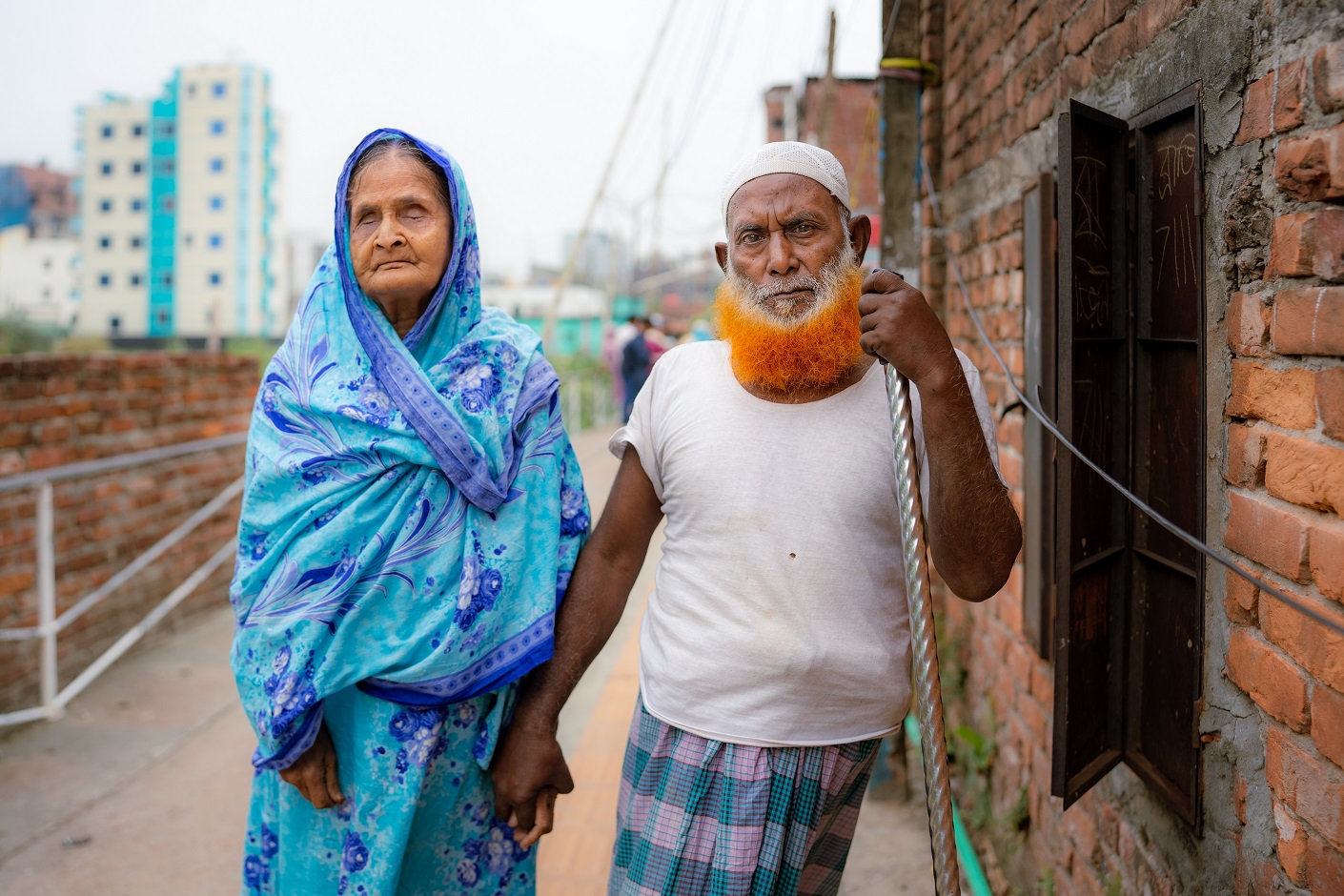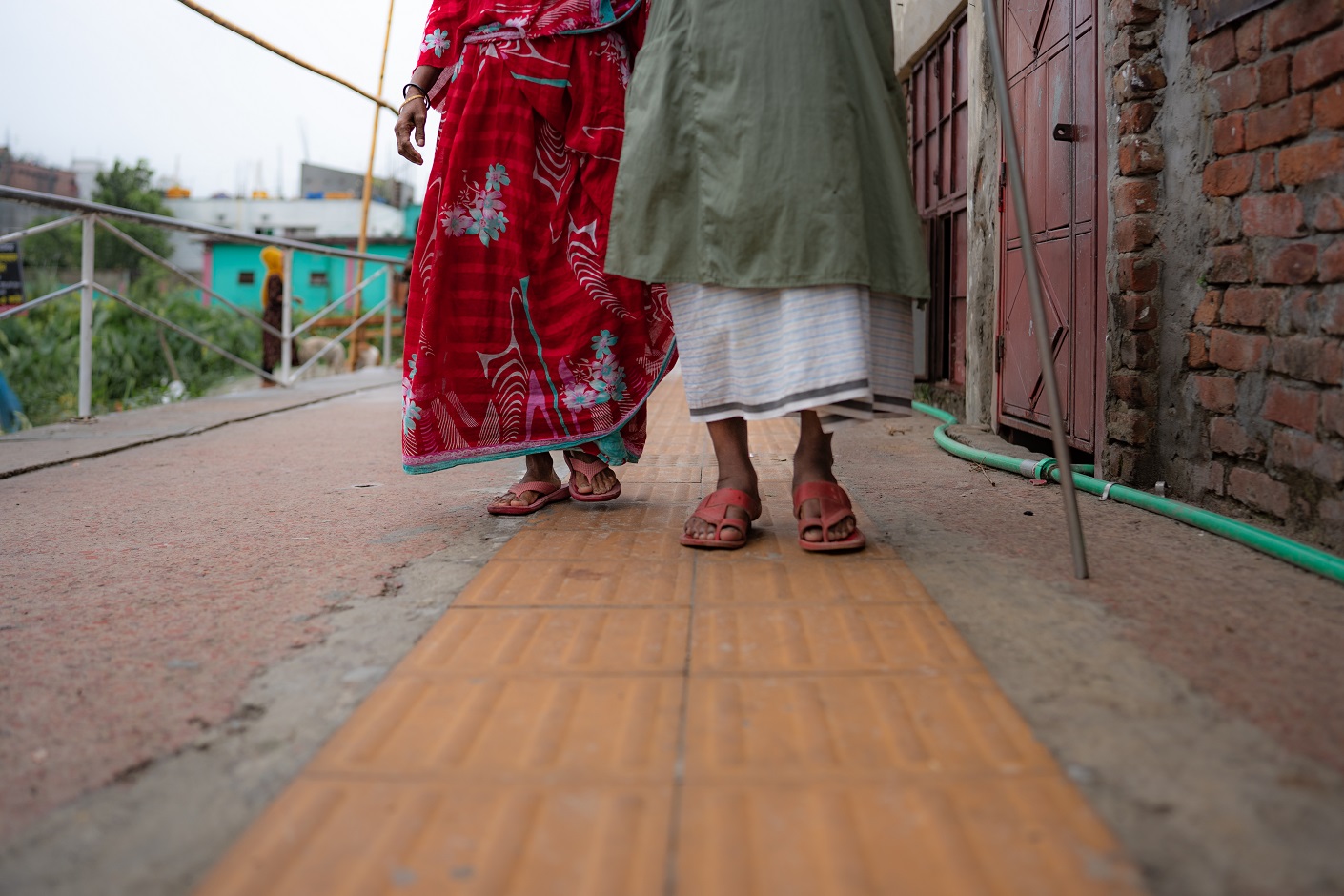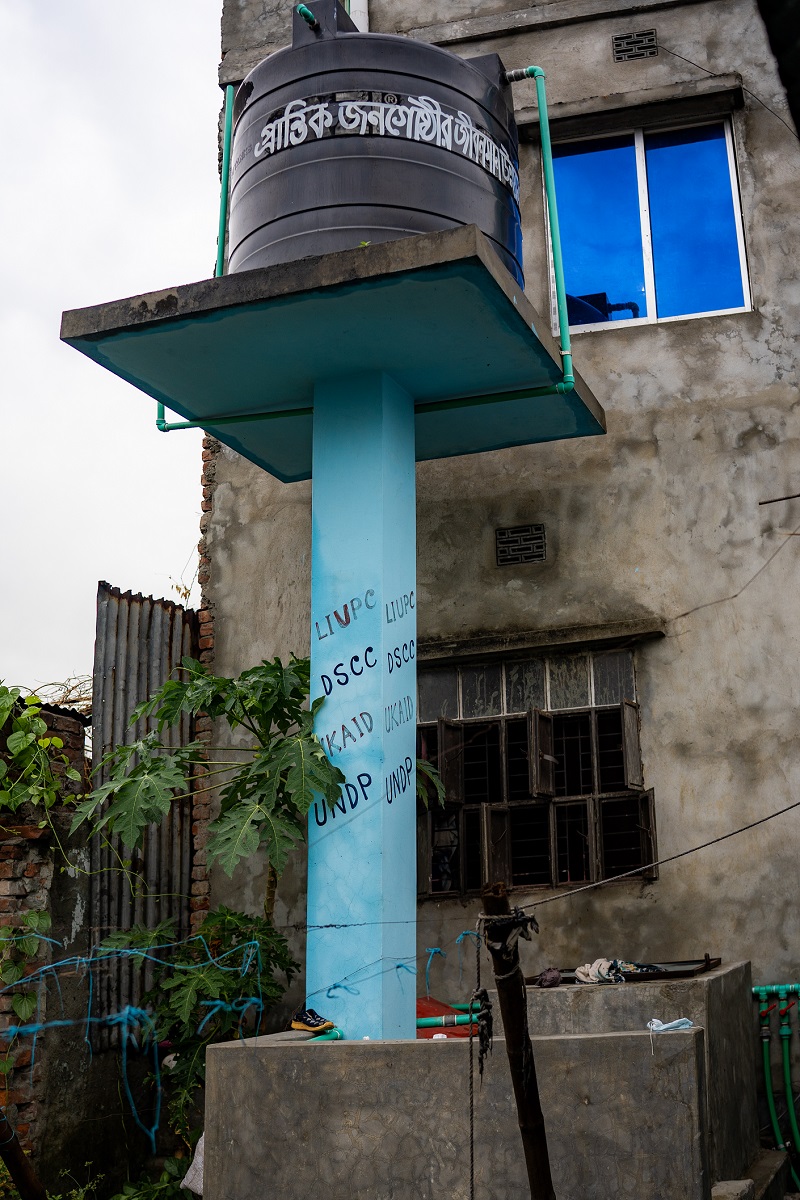From Waterlogged to Empowered: Resilient Infrastructure and Inclusion in Andha Colony
Climate-Resilient Infrastructure Transforms Lives of Ultra-Poor Blind Community in Dhaka
June 13, 2023

Breaking Barriers: Embracing Independence as Visually Impaired Individuals Navigate the New Access Road in Andha Colony
Imagine a place where knee-deep, heavily polluted water engulfs your surroundings for nine months out of the year. Now picture yourself living in that place, blind and impoverished, relying on your family members to walk a mile just to collect drinking water. This was the harsh reality for the residents of Andha Colony in Demra's Boxnagar.
Nestled on the edge of Dhaka, the capital city of Bangladesh, Andha Colony may not resemble a bustling urban area, but it is an integral part of the Dhaka South City Corporation. Among its inhabitants, 49 community members are visually impaired and fall under the urban poor category, desperately in need of urgent assistance to protect their lives.
In this colony, one can find rows of houses surrounded and overlooked by water bodies. Within these houses, Borhan Uddin, a 60-year-old visually impaired man, has spent his entire life. For as long as he can remember, the monsoon rains have brought endless suffering and horror. Borhan Uddin, who used to rely on begging for survival, would navigate through stagnant water to reach his home throughout most of the year.
"Our children had to wade through the dark, foul water to get to and from school for all these years. Returning home was a struggle each time. We clung to the walls of the houses that lined the dirt road, using them as a guide to prevent us from slipping into the waterbody at the road's edge," reminisced Borhan Uddin. He added, "We had limited access to drinking water. Our family members, especially the women, had to walk long distances to collect water and pay for it."

A Path to Inclusion: Visually Impaired Residents Explore New Horizons on Andha Colony's Access Road
Until 2022, this was the grim reality for the 70 families who called this place their home for years. However, their circumstances have changed for the better, thanks to an innovative and climate-resilient solution born out of the 'Livelihoods Improvement of Urban Poor Communities Project' (LIUPCP).
Recognising the importance of addressing the needs of the urban poor and ensuring inclusive, climate-smart, and sustainable development in Bangladesh, the Government of Bangladesh, in collaboration with the United Nations Development Programme (UNDP) and the Foreign, Commonwealth & Development Office (FCDO) of the United Kingdom are jointly implementing the LIUPC Project to build urban resilience holistically and alleviate urban poverty.
As a result of this programme, the residents of Andha Colony, including persons with disabilities, are now able to safely commute from their homes thanks to the community-led construction of a raised access road with an in-built drainage network, completed in 2022. Spanning 450 meters in length, the design of the climate-resilient infrastructure was tailored to the needs of the visually impaired community members, and features tactile paving to help them navigate more safely.
Before this development, the path leading to Andha Colony consisted of an unpaved dirt road, which was submerged in polluted water for most of the year. It was a public health hazard, with locals suffering from skin diseases as well as a higher risk of contamination of drinking water. The risks associated with persons with disabilities were even more pronounced, often resulting in limited communication and access.

Water Tanker Provides Lifeline to Residents of Andha Colony Amidst Water Scarcity
The community-led infrastructure improvements in Andha Colony are an example of how relatively small-scale locally-led adaptations can have such a wide-ranging impact in transforming the lives and livelihoods of urban poor communities, ensuring they live better lives in dignity, and have an opportunity to grow further.
The work through LIUPCP, however, extends far beyond infrastructure development and encompasses complementing socioeconomic support through wide-ranging initiatives to build systemic resilience of vulnerable urban communities across 19 cities in Bangladesh.
The successful partnership between the Governments of Bangladesh and the United Kingdom, and UNDP Bangladesh, promotes effective governance-based solutions to multifaceted urban challenges, and ensures sustainable development in Bangladesh, leaving no one behind.
From Despair to Dignity: Transforming Lives in Andha Colony Through Climate-Resilient Infrastructure and Inclusive Development

 Locations
Locations



